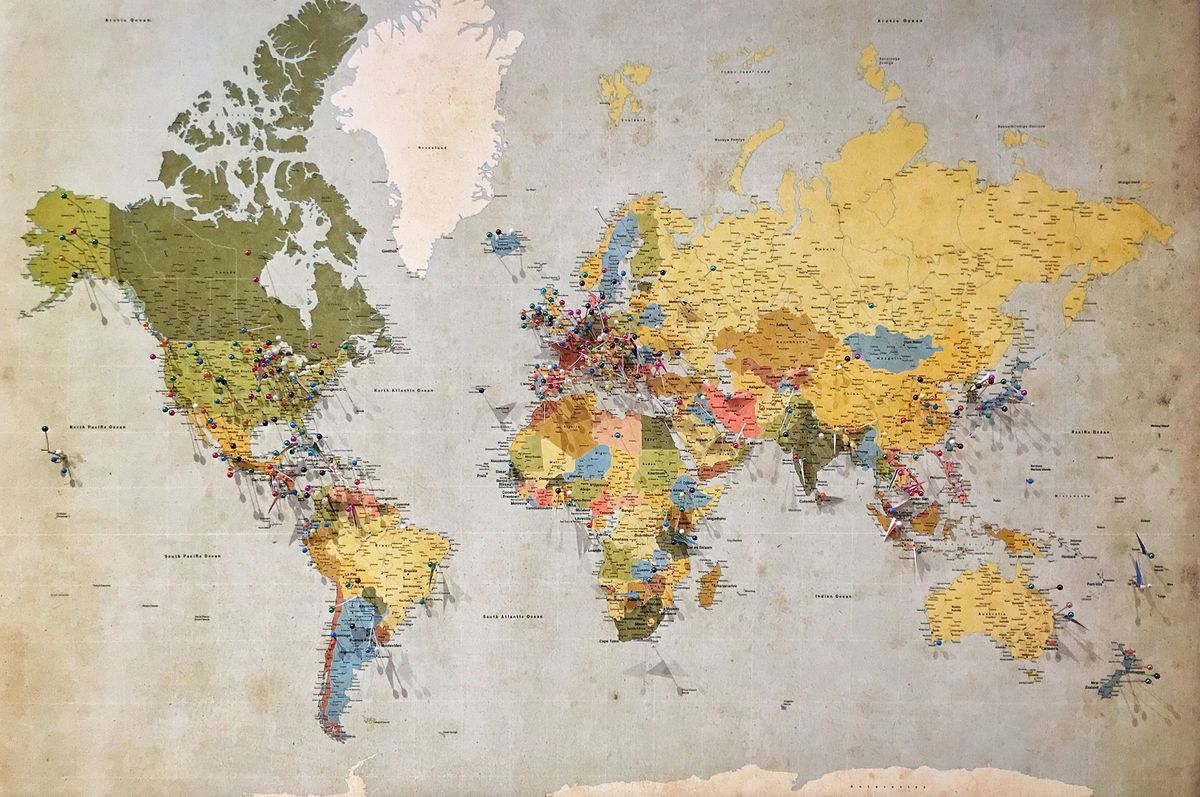The article ‘Chasing Down Payments for Exported Raw Materials’ delves into the intricacies of the export payment process, outlining the challenges exporters face and the strategies they can employ to secure payments. It explores the critical role of financial institutions, the impact of political and economic factors, and the legal avenues available for resolving disputes. The export of raw materials is a complex endeavor fraught with risks, and understanding the mechanisms of payment is vital for the success and financial stability of exporters.
Key Takeaways
- Exporters must navigate a complex payment process involving various terms, methods, and documentation specific to international trade.
- Political and economic instability, currency fluctuations, and payment disputes pose significant risks to securing payments for exported raw materials.
- Letters of credit, export credit insurance, and careful negotiation of payment terms are effective strategies to mitigate payment risks.
- Financial institutions play a pivotal role in facilitating export payments through banking services and trade finance instruments.
- Legal recourse, such as international arbitration and enforcement of contracts, is essential for resolving payment conflicts in different jurisdictions.
Understanding the Export Payment Process
Key Terms and Payment Methods
In the realm of exporting raw materials, we’re dealing with a complex web of payment methods and terms. Understanding these is crucial to ensuring a smooth transaction.
- Advance Payment: Cash before delivery, high risk for buyers.
- Open Account: Payment after delivery, high risk for exporters.
- Documentary Collections: Documents against payment or acceptance.
- Letters of Credit: Bank guarantees payment, reducing risk for both parties.
Each method carries its own balance of power, risk, and trust between exporter and importer.
We must navigate these waters with care, aligning our strategies with the payment terms that best protect our interests and facilitate successful trade.
The Role of Incoterms in Export Transactions
We navigate the complex world of international trade with a compass called Incoterms. These terms are the universal language of export transactions, defining the responsibilities of buyers and sellers. They streamline the payment process by clarifying who pays for shipping, insurance, and tariffs.
- EXW (Ex Works): Seller makes goods available at their premises.
- FOB (Free On Board): Seller loads goods on board the vessel nominated by the buyer.
- CIF (Cost, Insurance, and Freight): Seller pays for the cost to bring goods to the port of destination.
By adhering to Incoterms, we mitigate misunderstandings and ensure a smoother payment process.
Remember, selecting the right Incoterm is crucial. It influences the payment timeline and risk allocation. We must weigh our options carefully to protect our interests and maintain healthy trade relationships.
Documentation Required for Export Payments
We’ve tackled the intricacies of the export payment process, but let’s not overlook the paperwork. Proper documentation is the backbone of successful export transactions. It’s our ticket to ensuring that all parties are on the same page and that payments flow smoothly.
Essential documents include the commercial invoice, packing list, and transport documents. Each serves a unique purpose:
- Commercial Invoice: The financial document detailing the sale.
- Packing List: Specifies the contents of each shipment.
- Transport Documents: Proof of dispatch and terms of carriage.
Remember, discrepancies in documentation can lead to payment delays or even refusals. Precision is key.
We must also be mindful of certificates of origin and inspection certificates. These documents can be critical, especially in markets with stringent import regulations. Without them, our raw materials might never clear customs, let alone trigger payment.
Challenges in Securing Payments for Exported Raw Materials
Political and Economic Risks in Export Markets
We’re in a world where geopolitical tensions and economic instability can turn the tide of our export markets overnight. Navigating these risks is crucial for the sustainability of our raw materials export business.
- Political instability can lead to sudden changes in trade policies or embargoes.
- Economic downturns in the buyer’s country may result in delayed payments or defaults.
- Regulatory changes can disrupt established trade routes and payment channels.
We must stay vigilant, constantly updating our risk assessments and adapting our strategies to the ever-changing political and economic landscapes.
It’s not just about securing payments; it’s about ensuring compliance with international standards and maintaining the integrity of our supply chain. We adhere to best practices for managing risks, especially in sensitive sectors like industrial chemicals exports. Moreover, we’re proactive in managing non-payment issues in pharmaceutical chemicals supply and securing payments in international plastics and resins trade.
Currency Fluctuations and Exchange Rate Impact
We’re constantly on our toes, adapting to the volatile dance of currency markets. Exchange rates fluctuate, and with each shift, the value of our exported raw materials swings. It’s a financial seesaw we can’t afford to ignore.
Currency fluctuations can erode profit margins or, conversely, lead to unexpected gains. We strategize to hedge against these risks, employing tools like forward contracts and options. Here’s a snapshot of our approach:
- Monitor exchange rates closely
- Use hedging instruments to lock in prices
- Partner with banks for expert financial advice
Our goal is to maintain stability in an unstable currency landscape, ensuring that the fruits of our labor aren’t lost in translation.
Navigating international payment complexities in petrochemical exports involves managing currency risks, regulatory compliance, and utilizing technology for efficiency. Strategic partnerships with financial institutions are crucial for secure transactions.
Delays and Disputes in Payment Settlement
We’ve all felt the sting of overdue payments, especially prevalent in sectors like agricultural chemicals and specialty gases. Timeliness is key in maintaining a healthy cash flow and business relationships. To tackle these delays, we implement proactive strategies for delinquent accounts, ensuring our clients can secure quick quotes and maintain momentum.
Communication is our first line of defense. We open clear channels with buyers to preempt any misunderstandings that could lead to disputes. When issues arise, we don’t shy away; we confront them head-on, armed with detailed documentation and a firm understanding of our contractual rights.
- Establish a clear payment timeline
- Maintain meticulous records
- Engage in open dialogue with buyers
In the face of payment disputes, our resolve doesn’t waver. We stand firm on the agreed terms, ready to navigate through the complexities of international trade.
Financial hiccups can disrupt even the strongest of trade ties. But with the right approach, we turn potential conflicts into opportunities for reinforcing trust and ensuring future business.
Strategies to Mitigate Payment Risks
Utilizing Letters of Credit
We’ve learned the hard way that cash flow is the lifeblood of our business. To mitigate risks in our transactions, especially when dealing with volatile commodities like petrochemicals, we turn to Letters of Credit (LCs). These financial instruments are crucial for ensuring payment security and stability.
- LCs act as a promise from the buyer’s bank to pay us, the seller, upon the presentation of specified documents.
- They provide a safety net against non-payment and document discrepancies.
- By transferring the payment risk from the buyer to the bank, we gain peace of mind.
With Letters of Credit, we’re not just hoping for the best; we’re planning for certainty in every deal.
The use of LCs requires careful coordination and understanding of terms. We must ensure that all documentation is in order, from shipping details to product specifications. This diligence pays off by minimizing delays and disputes, keeping our operations smooth and our partnerships strong.
Export Credit Insurance Solutions
We hedge our bets with export credit insurance. This safety net protects us against the non-payment risks that keep us up at night. Boldly stepping into new markets becomes less daunting when we’re backed by a policy that covers insolvencies and protracted defaults.
- Assess the creditworthiness of foreign buyers
- Choose the right insurance policy for our needs
- Understand the claims process
With export credit insurance, we’re not just protecting our transactions; we’re securing our peace of mind.
Financial institutions often provide tailored solutions, but we must navigate the fine print. The cost of premiums versus the potential risk of non-payment is a calculation we can’t afford to overlook. By managing payment methods, trade finance instruments, legal framework, insurance solutions, and market diversification in textile chemicals exports, we ensure financial security and global competitiveness.
Negotiating Favorable Payment Terms
We’ve learned that a comprehensive approach to negotiating can make or break a deal. It’s about more than just the numbers; it’s about understanding the nuances of international trade laws and the expectations of both parties.
- Start with clear terms: Define payment schedules, late fees, and interest rates.
- Leverage your position: Use your track record and reliability to negotiate better terms.
- Be flexible, but firm: Find a balance that secures your interests while accommodating the buyer.
Remember, advance payment systems can be a game-changer. They protect our cash flow and signal trust to our buyers.
When all else fails, we have litigation and arbitration to fall back on. These tools are vital in securing our financial interests and ensuring that agreements are honored.
The Role of Financial Institutions in Facilitating Payments
Banking Services for Exporters
We navigate the complex world of international trade with ease, thanks to the robust banking services tailored for us, the exporters. From opening accounts in foreign currencies to managing trade finance, our banking partners are instrumental in our global operations.
- Transaction Services: Streamlining our payment and collection processes.
- Foreign Exchange: Offering competitive rates and hedging options.
- Trade Finance: Providing short-term credit to bridge payment gaps.
We’re committed to promoting ethical business conduct, ensuring our financial practices align with the highest standards.
Our success hinges on the seamless integration of banking services into our export strategy. They’re not just facilitators; they’re our partners in conquering international markets.
Trade Finance Instruments
We navigate the complex seas of trade finance with a well-stocked arsenal of instruments. Letters of Credit stand as the bulwark, guaranteeing payment upon the fulfillment of contractual terms. Documentary collections offer a simpler, yet effective alternative, balancing security and cost.
- Forfaiting provides immediate cash by selling our receivables at a discount.
- Export factoring allows us to manage credit risk while ensuring a steady cash flow.
- Bank guarantees serve as a safety net, promising payment in case of default.
We must always weigh the cost against the security provided by each instrument. Choosing the right tool can mean the difference between a smooth transaction and a financial quagmire.
Our strategy hinges on selecting the appropriate instrument for each deal. We consider the buyer’s creditworthiness, the political stability of the market, and the complexity of the transaction. Only then do we commit to the path that will secure our payments most effectively.
The Impact of International Sanctions on Payments
When international sanctions hit, they hit hard. Our payment flows can freeze overnight, leaving us scrambling to find alternative routes. Sanctions disrupt not just the targeted nation, but also the web of global trade that we’re a part of.
Sanctions are a double-edged sword. On one hand, they serve as a tool for enforcing international law and policy. On the other, they can inadvertently penalize exporters like us, who must navigate the sudden complexities they introduce.
- Review sanction lists regularly
- Assess the risk of secondary sanctions
- Develop contingency plans
We must always be prepared for the unexpected. The landscape of international trade is ever-shifting, and sanctions can reshape it in the blink of an eye.
Legal Recourse and Dispute Resolution
International Arbitration for Payment Conflicts
When we’re caught in the crosshairs of a payment dispute, international arbitration offers a beacon of resolution. It’s a process we lean on, structured to bypass the complexities of national courts. Here, impartial experts dissect the case, grounded in the commercial realities we face.
- We initiate by selecting an arbitration institution.
- Next, we define the rules and procedures to follow.
- Then, we appoint arbitrators with the right expertise.
Arbitration clauses in contracts are our shields, providing a pre-agreed path to settle disputes.
Remember, the goal is to secure our dues without burning bridges. Legal steps for addressing disputes and recovering overdue payments include engaging legal counsel, understanding debt collection laws, and pursuing legal action when necessary. It’s about striking the balance between firmness and ongoing partnership.
The Enforcement of Export Contracts
We stand firm in the face of non-compliance. Enforcing export contracts is a critical step in securing our due payments. When a buyer defaults, we must act swiftly to protect our interests.
Legal mechanisms are in place to ensure that agreements are honored. We navigate through the complexities of international law to uphold the terms of our contracts. It’s not just about the immediate recovery; it’s about setting a precedent for future transactions.
- Initiate formal notices of breach
- Engage in negotiations for resolution
- Pursue arbitration or litigation if necessary
Our resolve in these matters sends a clear message: we expect every contract to be fulfilled as agreed. This stance is crucial for maintaining the integrity of our business dealings.
Visit our website page for more resources on chasing down payments for exported raw materials. Stay informed with our newsletter, and rest assured that your rights are protected under our watch.
Navigating the Legal Framework of Different Jurisdictions
We must navigate international trade laws with precision to ensure payment security. Each country’s legal system presents unique challenges and opportunities. It’s crucial to prioritize compliance to avoid costly legal entanglements.
Effective dispute resolution mechanisms are our lifeline in the complex sea of international trade. They provide a structured approach to resolving conflicts, safeguarding our financial interests.
Assessing buyer creditworthiness is not just due diligence—it’s a strategic move. A thorough assessment minimizes the risk of non-payment and strengthens our position in negotiations.
Understanding the legal nuances of each market is essential. We must adapt our strategies to align with local regulations, ensuring smoother transactions and payment flows.
Navigating the complexities of debt recovery can be challenging, but with Debt Collectors International, you have a partner that excels in legal recourse and dispute resolution. Our skilled negotiators and network of attorneys are adept at mediating disputed claims and enforcing judgments to ensure you receive the payments you’re owed. Don’t let unpaid debts disrupt your business—take the first step towards financial recovery by visiting our website and exploring our comprehensive collection services. We’re here to provide unparalleled results and performance, backed by over 30 years of experience. Act now and secure your financial future.
Frequently Asked Questions
What are the common payment methods for exporting raw materials?
Common payment methods include advance payment, letters of credit, documentary collections, and open account terms. Each method varies in risk and convenience for the exporter and importer.
How do Incoterms affect the payment process in export transactions?
Incoterms define the responsibilities of buyers and sellers in international trade, including payment terms, risk transfer, and transportation costs. They provide clarity and reduce misunderstandings in export transactions.
What documentation is typically required to secure payments for exports?
Documentation can include commercial invoices, bills of lading, certificates of origin, export licenses, and insurance certificates. Proper documentation is essential for customs clearance and payment processing.
What strategies can exporters use to mitigate payment risks?
Exporters can use strategies such as requiring advance payments, using letters of credit, obtaining export credit insurance, and negotiating favorable payment terms to reduce payment risks.
How do financial institutions facilitate export payments?
Financial institutions offer services like trade finance, issuing letters of credit, providing export financing, and facilitating international funds transfers to help exporters manage and secure payments.
What legal recourse do exporters have in case of payment disputes?
Exporters can resort to international arbitration, seek enforcement of export contracts through legal action, or utilize the legal frameworks of the jurisdictions involved in the trade agreement to resolve payment disputes.





